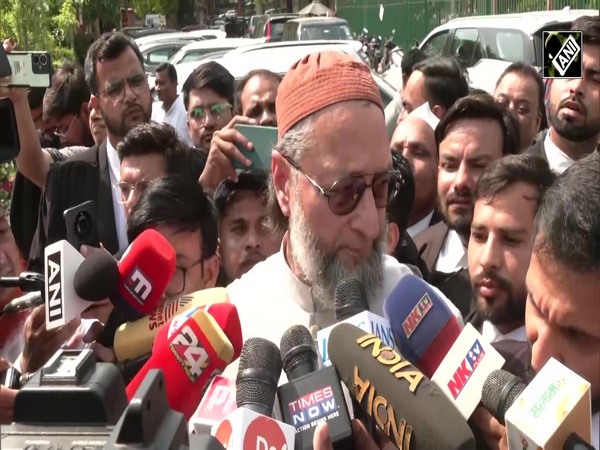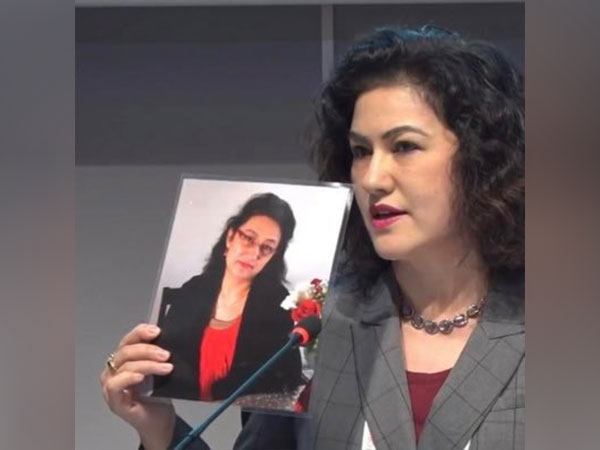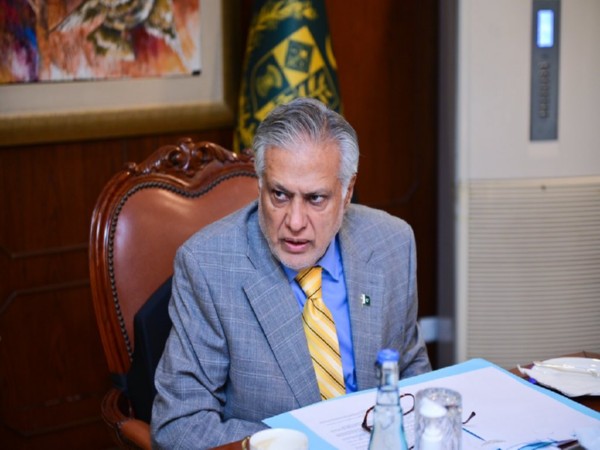
"Will resign if report is unconstitutional," says BJP's Jagdambika Pal as SC hears challenges to Waqf Amendments
Apr 18, 2025
New Delhi [India], April 18 : Bharatiya Janata Party leader and Chairman of the Joint Parliamentary Committee on the Waqf Bill, Jagdambika Pal said on Friday that he would resign from his post if it is found out that the report made by the Joint Parliamentary Committee is unnconstitutional.
"I have said before too that if the report made by us is unconstitutional or interferes with religious freedom then I will resign," Jagdambika Pal told ANI in Delhi.
He further attacked the Opposition parties and specifically Congress for "misleading" people by claiming that the amendments are an attack on religious freedoms, saying that the law actually helps poor and Pasmanda muslims.
"The parliament has passed the law after more than 12 hours of debate, and after the assent of the President it has become law of the land. The Supreme Court has the right to interpret it, and there have been some petitions calling the law as unconstitutional, or an attack on religious freedom, or that the land will be taken away. They say outside that it is unconstitutional an attack on religious freedom, but in the court they just raise these issues (of Waqf by users, non-muslim members). The Supreme Court heard them, they did not stop the implementation but just gave the government 7 days to reply to that. There are 73 petitions, and the Supreme Court has asked both sides to appoint five lawyers," the BJP MP said.
He also said that it has been established in law that Waqf boards across the country are not a religious body, but rather a statutory body which is meant to just take care of Waqf properties.
"All the decisions till now have said that it is a not a religious body, but an executive body, a statutory body which just takes care of properties. On the dispute over properties, above the District Magistrate, the decision on cases will be taken by Secretary or Commissioner rank but the same question has been raised by Sibal and others," Pal added.
He said that the objections raised by petitioners against the Waqf mainly raise the issue of provisions regarding 'Waqf by user' and the inclusion of non-muslim members have already been addressed by the Joint Parliamentary Committee which was formed to review the bill.
Notably, the Centre had assured the Supreme Court during the hearing held on April 17 that they will not be denotifying any 'Waqf-by-user' provision and not include any non-muslim members in the Board. The assurance comes a day after the top court said they will consider staying those parts of the law.
"The Parliamentary Committee has addressed the issues of what will be the role of the DM, why non-muslim members should be allowed, this is because Waqf Board is not a religious body, it is for taking care of Waqf properties in the country, under the Waqf Act, this decision that this is a statutory body not a religion body has been taken in Rajasthan and otherwise too. There was a decision by Supreme Court in 2010, and then in Delhi, Karnataka, Tamil Nadu similar things have happened," Jagdambika Pal said.
Speaking on the provision of Waqf-by-user, he assured the people that the intent of the law is not to take away properties and that any properties which is being used for its purposes, and namaz is being read on will not be removed as Waqf.
"On the Waqf by user, the amendment has been made prospective, ending the retrospective. If namaz is being read in masjid, kabristan or other places then that place will remain Waqf. The opposition is political, Congress is misleading the people... It is the law of the land and it is in favour of poor Pasmanda Muslims," he said.
Several petitions were filed in the apex court challenging the Act, contending that it was discriminatory towards the Muslim community and violated their fundamental rights.
However, certain petitions have been filed defending the act too. BJP-led state governments in Rajasthan, Haryana, Maharashtra, Madhya Pradesh, Assam, Uttarakhand, and Chhattisgarh filed impleadment applications. Additionally, advocates and organisations, including those protecting the rights of tribals and Hindus, also submitted applications in support of the Act.
The Supreme Court's next hearing on this matter will focus on directions and interim orders, with a final resolution expected to follow.



























